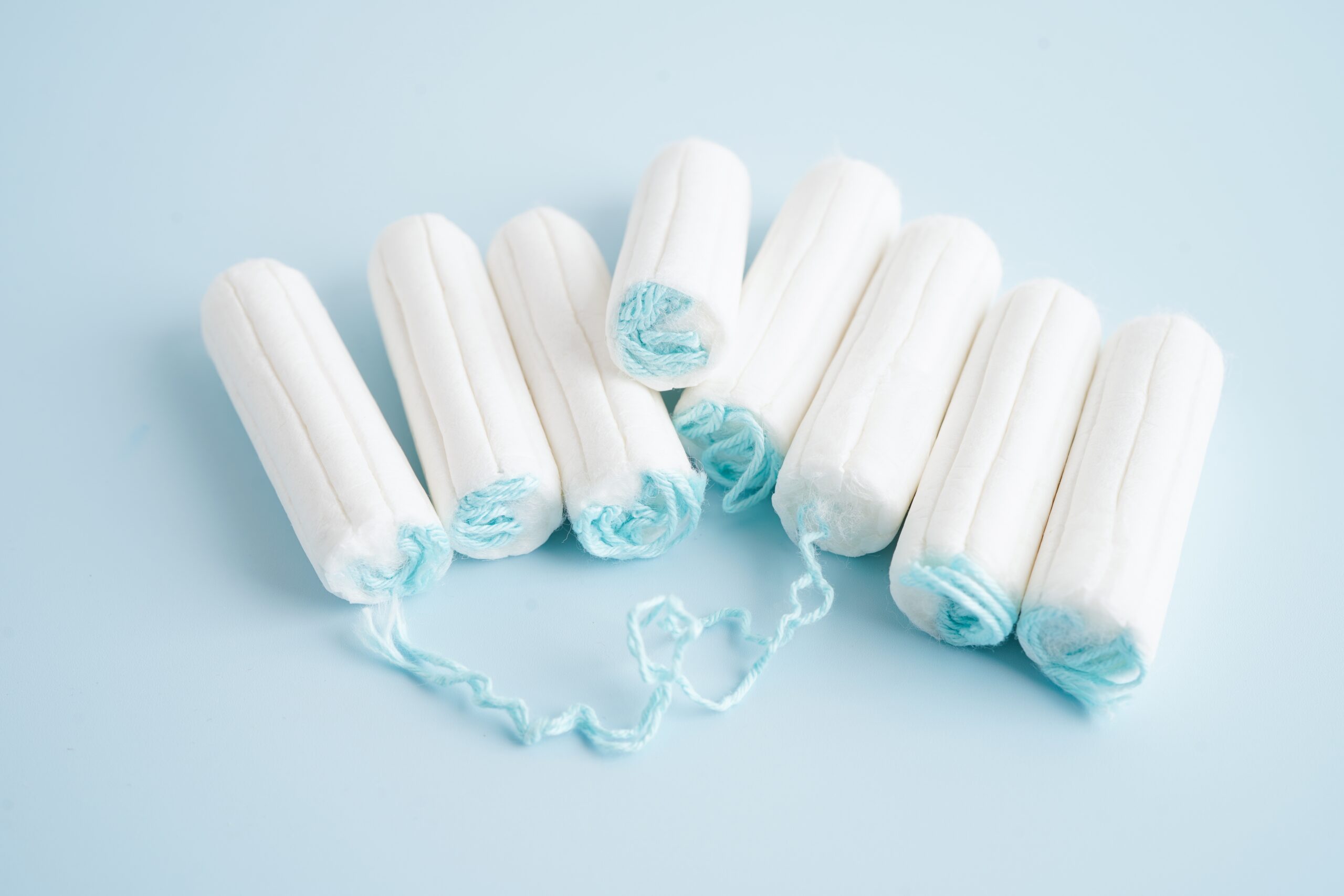This summer, a startling study from researchers at University of California, Berkeley revealed tampons from several brands contain toxic heavy metals like lead, arsenic, and cadmium. This finding follows the 2023 discovery that many menstrual products contain per- and polyfluoroalkyl substances (PFAS), even those marketed as PFAS-free. All of these contaminants are linked to major health problems. This article explores the emerging policy and legal responses to this issue.
PFAS, also referred to as forever chemicals, have been implicated in endocrine disruption, multiple cancers, high blood pressure, and developmental problems in children. Heavy metals have long been recognized as dangerous to health, as high levels of exposure can lead to acute poisoning that can be life threatening. However, low-level exposure to heavy metals also has well documented health effects, including damage to cardiovascular, nervous, endocrine, reproductive, and metabolic systems. The health effects from these contaminants in menstrual products have not been adequately studied. The UC Berkeley study notes that this contamination is of particular concern because heavy metal contamination occurs through skin exposure and vaginal skin has a higher potential for chemical absorption.
The U.S. Food and Drug Administration (FDA) regulates tampons and menstrual cups as Class II medical devices. Class II medical devices must go through the 510(k) process, which requires manufacturers to demonstrate their device is safe and effective because it is substantially equivalent to a product already on the market. However, the FDA does not require tampon makers to test their products for PFAS or heavy metal contaminants. The FDA only recommends that tampons be free of pesticide and herbicide residues, as well as two specific persistent organic pollutants (TCDD and TCDF). The FDA also does not require tampon makers to disclose the contents of their products. The only FDA labelling requirements requires tampon manufacturers include special warning labels about the risk of toxic shock syndrome. Menstrual pads are Class I medical devices and therefore are even less regulated by the agency. The agency’s last guidance to industry on best practices was issued in 2005. Finally, the FDA does not have oversight over other menstrual products like menstrual undergarments.
Congress has functionally ignored menstrual products. In 2022, a bipartisan group of legislators introduced a bill to make menstrual product manufacturers disclose ingredients. In 2023, legislators introduced a separate bill directing the National Institutes of Health to study the ingredients of menstrual products and the potential health effects of the ingredients. Neither bill has been enacted. In response to the study revealing the presence of heavy metals, the Democratic Women’s Caucus sent a letter to the FDA asking the agency to act in ensuring heightened safety of menstrual products. A week later, the FDA announced it had commissioned a literature review and laboratory study to study tampon safety and to assess the risk of metal exposure.
States have stepped in to fill the gaps in federal regulation. In 2019, New York was the first state to pass a law requiring menstrual product manufacturers to disclose intentionally added ingredients on packaging. California and Nevada have similar laws. However, these laws only cover intentionally added ingredients and therefore may not capture contaminants, particularly heavy metal contaminants, although this would require disclosure of PFAS use. Companies are also facing restrictions on producing menstrual items with PFAS at all. California Governor Gavin Newsom signed a bill earlier this month that prohibits manufacturing, distributing or selling any menstrual products that contain PFAS. Colorado, Maine and Minnesota have also taken steps to restrict PFAS in menstrual products. Earlier this year, Vermont passed a more expansive law which also included a ban on heavy metals like mercury and lead in addition to PFAS and other “harmful chemicals.”
Private litigants also have attempted to address contaminants in menstrual products. While the cases refer to the potential negative health effects, the claims themselves have been class actions based on state consumer protection laws rather than mass tort claims. Thinx, a brand of menstrual undergarments, faced a 2022 class action complaint alleging the company had falsely branded its products as being free of harmful chemicals, toxic metals, and environmentally detrimental ingredients. This class action arose from journalism revealing that Thinx products contained PFAS. The company eventually settled these claims for five million dollars, denying any allegations of wrongdoing. Thinx also agreed to non-monetary relief that requires PFAS are not intentionally added to its products.
A new class action has been filed against Procter & Gamble asserting claims under California state consumer protection laws. The class action alleges that the company marketed its products as safe despite Tampax containing unsafe levels of lead. A similar class action was filed against Kimberly-Clark for its Kotex brand. It alleges that Kotex’s level of lead exceeds the maximum amount allowed in consumer products under California’s “Proposition 65.” Both companies sought for the actions to be dismissed. Kimberly-Clark claims that the lead plaintiff in that class action never used its products and relied on testing of products she did not purchase. Procter & Gamble asserts that the action against it is mooted by the announced FDA review of heavy metals in menstrual products.
Both federal regulation and state legislation could address the existence of PFAS and heavy metals in menstrual products. In the interim, private litigants are seeking to punish the industry and potentially change its practices. As evidence of these contaminants’ presence in menstrual products and possible health effects becomes stronger, the public may see more aggressive FDA regulation, more states enacting bans, and more private litigants pursuing tort claims.
